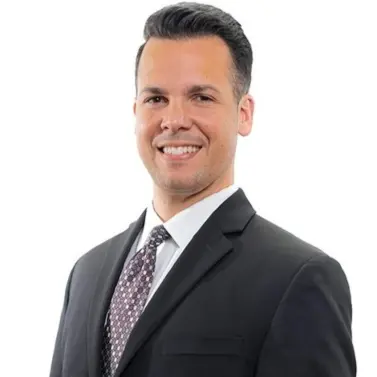What steps do I need to take to protect myself from the liabilities inherent with rental property ownership?
As a rental property owner, you can be held responsible for accidents, injuries, and damages even when you are not there. Protecting yourself from the legal and financial ramifications of other’s poor decisions is vital. Keep reading to learn what tools are at your disposal to limit your liability as a property owner.

Brian Davis
Brian Davis is a real estate investor and founder at SparkRental.com.
3 Ways to Protect Yourself from Litigation
One way to protect yourself from legal liability is to own your properties under an LLC name. However, you have to be careful to keep all of your personal and LLC funds completely separate, or litigators will successfully “pierce the corporate veil” and come after you, along with all your assets.
Another way to protect yourself is to hire a property manager. You can still be sued if they mess up, but at least you can present an argument that you outsourced the work to [someone else]. They mismanaged it, and they are responsible for their bungle.
Finally, require all your tenants to maintain renter’s insurance. It provides some liability coverage for them, which also helps you, as litigators always pursue the deepest pockets. If the tenant’s dog bites a neighbor, for example, the neighbor could try to sue you. If the tenant has renter’s insurance, they’re more likely to sue the tenant, knowing that if they win, the insurance will pay them.
Cover Your Assets Using Umbrella Insurance Policy
The answer to this question is very simple. If you are a landlord and own rental property, cover your assets! The easiest way is to contact your insurance agency and ask about an umbrella policy. These policies are incredibly undersold, very inexpensive, and come in increments of $1,000,000.
The reason they are called “umbrella” is that this one policy goes over the top of the liability on your home, auto, rental, boat, RV, motorcycle, etc., policies. Many agencies can bind up to $5,000,000 without any financial requirements.
As a landlord, you are at the mercy of your tenants and their guests. If a guest gets “overserved” at a party at that location and then leaves and causes a serious auto accident resulting in bodily injury and property damage, you could be held liable. If someone fell down a flight of stairs while at that party, once again, you could be held liable.
In their purest form, they are lawsuit protection for you and can shield “attachable assets” in a court of law. Included in this are savings and investment accounts (non-retirement), brokerage, and stock option accounts (non-retirement). Also, your earned income could be attachable. It can be garnished by the court upwards of 25-30% (depending on the state) until the judgment is monetarily satisfied.
Many landlords will use an LLC to hold their investment properties, but the umbrella will do the same thing, which is to protect your assets.

Brian Carden

Alejandro Uriarte
Preventing a Negligence Claim
There are many liabilities inherent with rental property ownership, and one of the biggest is negligence, which means the property owner failed to take reasonable care of the property. The steps needed to be as legally protected as possible include the following:
1. Use a lease agreement that clearly states which areas of the property the owner is responsible for and that requires renters to notify you in writing of issues with the property. It should allow at least 10 days for the issue to be resolved or for a plan to address the issue to be submitted (in case of major repair). Having a clause that requires renters to vacate the property when repairs are needed will alleviate some of the risks presented by construction on the site.
2. Have an inspection done of the property every 6 months and after storms or rain events to identify any issues. In negligence cases, claimants only need to show that the property owner should reasonably have known that the premises were in an unsafe condition. Inspections to identify possible slip-and-fall claims or other accident claims will help to protect the property owner.
3. Take out an insurance policy to limit your financial liability for injury, crime, and damage occurring on rental property.
4. Hiring a property management company and transferring your rental property into an LLC (limited liability company) will add layers of legal protection, as well.
3 Things Property Owners Should Take to Limit Liability
1. Buy Liability Insurance
It protects you against some (not all) liability. Understand the policy, so you know what is and isn't covered.
2. Put Everything in Writing
For example, leases, agreements, contracts. Avoid the “he said, she said.”
3. Comply with Local Laws and Regulations
For example, housing habitability codes, municipal codes relating to permitting, and disclosure requirements.

Evan W. Walker

Eric Nerhood
5 Ways to Protect Against Liability with Rental Properties
Use a Property Management Company
If you manage your property or someone else's property, you are taking on risk. Allowing a property management company to do the work passes the liability to them.
Create a Corporation or LLC
Create a corporation or an LLC to own the property and funnel the liability this way. Personal liability is removed from the individuals to the corporation or LLC.
Homeowners Insurance
Make sure you have great homeowners’ insurance. The property needs to be protected from anything and everything that might happen. This will decrease personal liability.
Monetary Lien
Have a monetary lien on the property even if you don't owe any money. If there is no monetary lien on the property, then people believe [you] own it free and clear. It opens you up to more frivolous lawsuits due to the belief that you must have money available.
Hire an Accountant to pay the Taxes
Hire an accountant to pay the taxes on the property and an attorney to read all lease agreements and contracts to decrease liability as much as possible.
4 Tips to Protect Your Resources
1. Buy Insurance
Common [types of insurance] are fire, flood, and occupier's liability insurance.
2. Security Deposit
Make sure you ask for at least two months [rent as] the security deposit. Should the tenant not pay rent or ruin the house, you won't [have to pay the damages] out of pocket.
3. Background Check on the Tenant
Make sure the tenant is respectable and can pay rent. Check the internet for bad records.
4. Cash Flow
Make sure you have adequate cash flow to pay the mortgage, even if you are in between tenants with no rental income.

Kim Chan

Stanley P. Jaskiewicz
Key Steps to Reducing Liability
• Rely on a professional insurance broker, familiar with your business, for liability, property, and excess [insurance] coverage.
• Own your property in a limited liability entity (or preferably a series of them) to limit your liability.
• Check references and screen tenants, particularly for a history of litigation. (I sometimes jokingly even add, “Don’t rent to anyone with a lawyer in the family.”) Of course, don’t violate laws against discrimination when your screen.
This is a crowdsourced article. Contributors are not necessarily affiliated with this website and their statements do not necessarily reflect the opinion of this website, other people, businesses, or other contributors.
